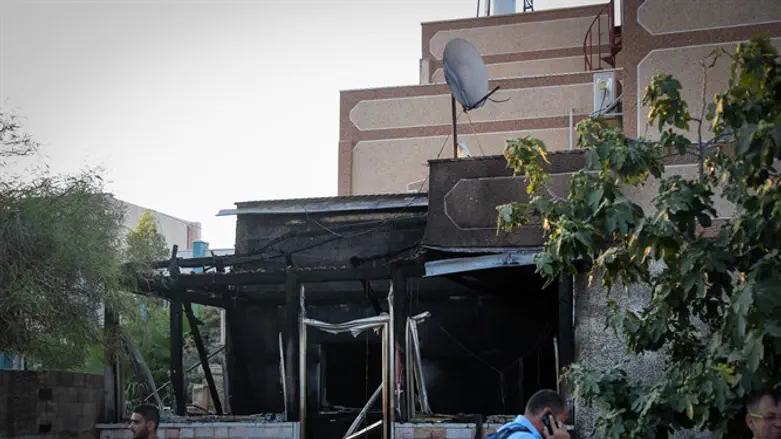
The families of the defendants in the Duma murder case revealed Monday that during the summation hearing, the Central District Attorney's Office informed the court in an unprecedented step that it was waiving a number of confessions of the defendants accused of involvement in the deadly arson in which a fire ignited by a firebomb caused the deaths of three members of an Arab household.
These are the confessions that were made during the interrogations in which the "special means" were used - a euphemism for the threat of torture.
A legal source who is aware of the case explained that the State Prosecutor's Office admited that the confessions given by the defendants in these interrogations are inadmissible and that it fears that the court will disqualify them. "The significance of the State Attorney's Office's notice to the court is that in light of the circumstances in which the defendants' confessions [were obtained] they cannot be recognized."
"This is a real earthquake, the prosecution is standing in front of the courtroom, and in fact admits - there were investigations here that led the defendants to give statements and confessions involuntarily, as required by law," the source added.
During the hearing, the judges heard the summaries of the first stage of the trial, and the oral summaries were added to the defense and prosecution summaries that are spread over hundreds of pages. At the end of the proceeding, the panel of judges will decide whether the confessions of the defendants in the Duma case are admissible or inadmissible.
Prior to the hearing, the state filed a request for the court to recognize torture as lawful. The families of the defendants said that the request states that while torture is prohibited and proscribed by law in interrogations in Israel, they nevertheless request that the court rule in the Duma case that "these are not improper means and that the confessions were not obtained illegally and [the court] will rule that the torture was done in light of the exceptional circumstances."
The families said, "in order to show that torture is not so bad, the state attorney dares to write to the court that with torture they followed the rules, exercised their discretion, and wrote that everything was done while preserving the dignity of the defendants "safeguarding as much as possible on the dignity of the defendants," tortured them while preserving their dignity. This was written in a document of the State of Israel in 2018. It's unbelievable."
The families also mentioned the harsh conditions in which the defendants are being held."They are in isolation, without telephones, and they are deprived of many rights given to all prisoners, even the terrorists receive better conditions of imprisonment."
Attorney Zion Amir, who represents a minor in the case, stated at the beginning of the hearing: "We have reached the summation stage, and I hope that one day the things that arose during the trial, the facts and the details in the course of the facts and testimonies of everyone - It was a profound shock to see how an investigation of a young boy who was not charged with murder. He was being investigated in connection, but not for murder."
"This is the way in which the investigation was conducted, which consisted entirely of threats and the use of violent means in all forms and in all kinds of ways. This is shocking to the mind. It is impossible to accept an investigation conducted in such a manner in a democratic society. I very much hope that the court will eventually say its words on these essential issue," attorney Amir added
The murder in Duma took place in the summer of 2015, when Molotov cocktails were allegedly thrown at two houses in the Palestinian Arab town of Duma. The firebombs caused a fire to break out. Sa'ad and Riham Dawabshe and their son, 18-month-old Ali Dawabshe, were killed in the fire.